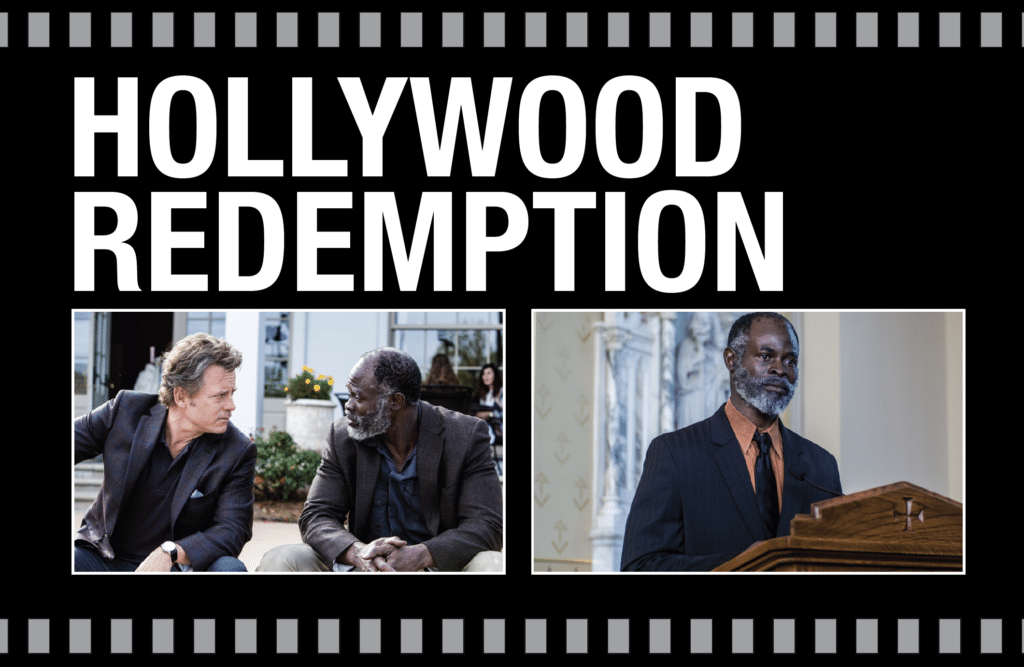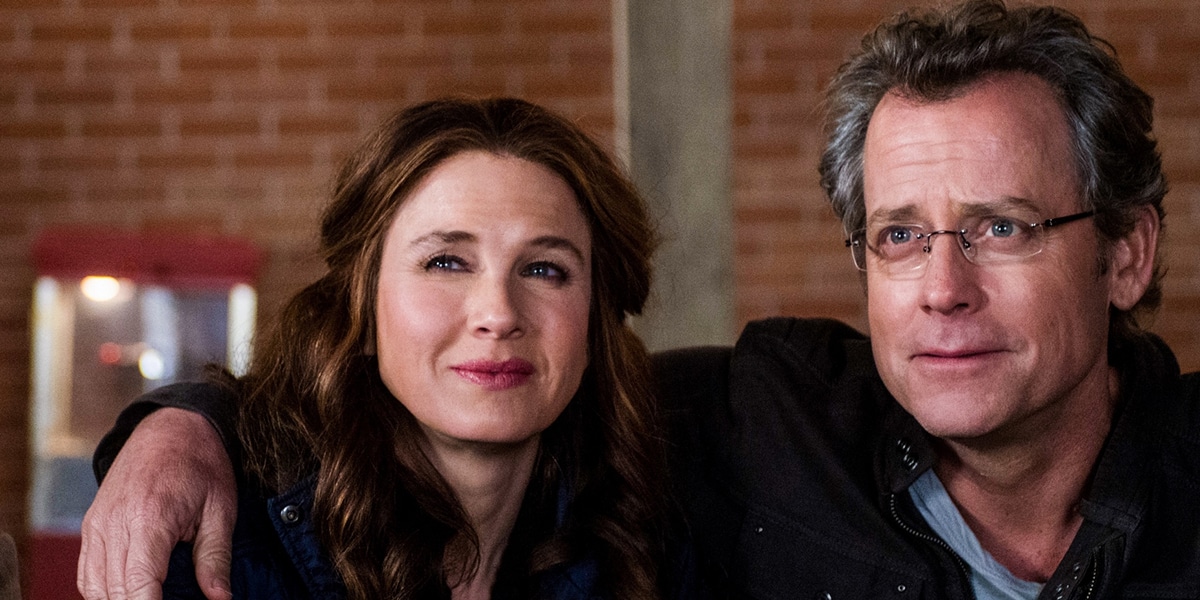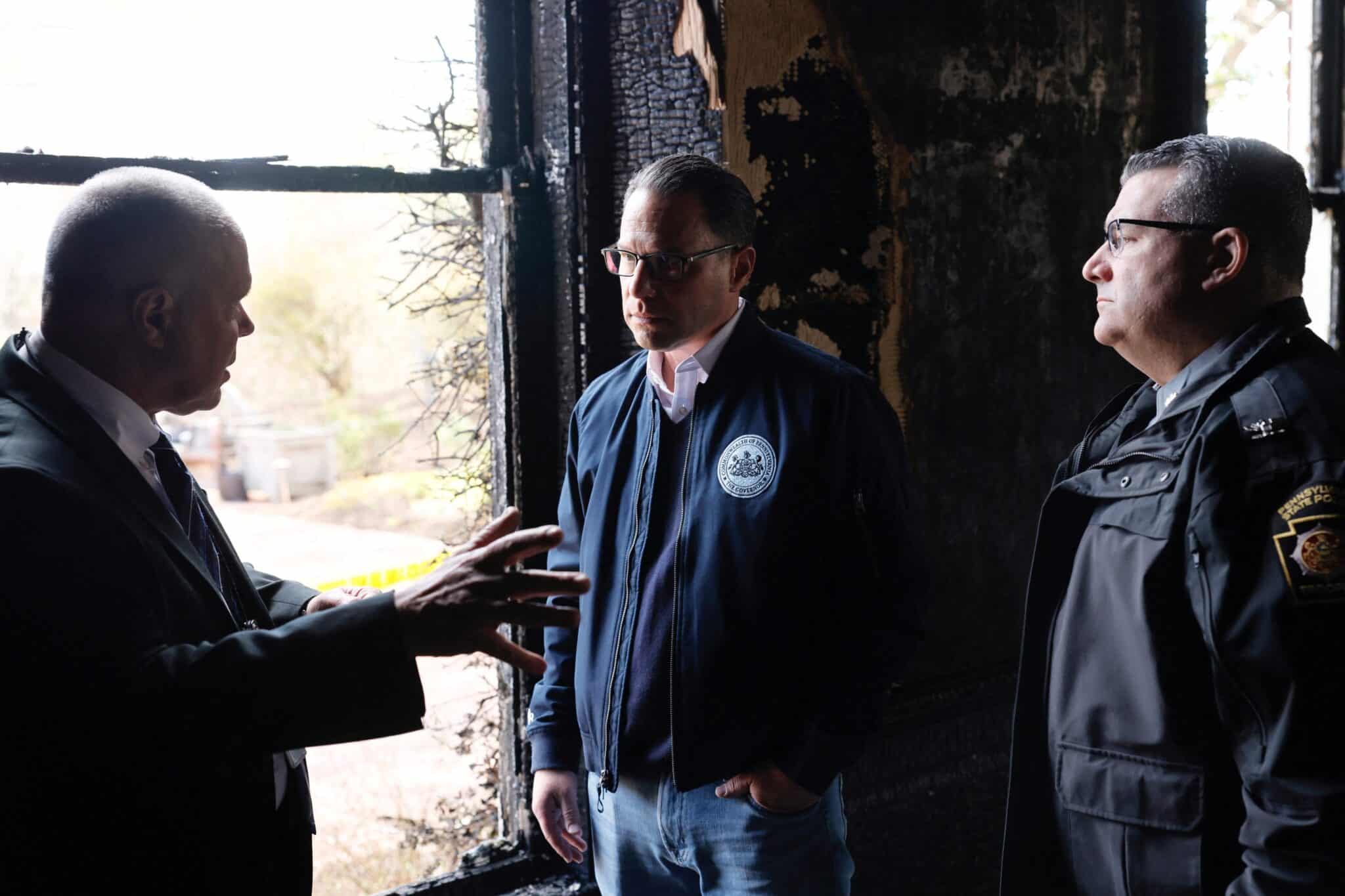Producer Ron Hall lived a life of privilege—until a moral stumble shook his foundation. His story is the subject of a new film starring Greg Kinnear and Oscar-winner Renée Zellweger.
One’s first impression of Ron Hall is that this Texas-born art-dealer-turned-film-producer has a ready smile and seems always on the verge of laughter. It only takes a couple of minutes while visiting the set of the new film Same Kind of Different As Me in Jackson, Mississippi, to learn that Hall is willing to tell on himself. He jokingly explains to St. Anthony Messenger that it’s a miracle he’s alive.
Hall was brought up poor in rural Texas. After starting college and completing a stint in the Army, he graduated from Texas Christian University with a degree in business. He then married his college sweetheart, Deborah Short, in 1969, and met with success as a high-end art dealer. When he made his first big commission for an art sale, it was a miracle he made it to the airport.
“Instead of looking where I was going, I kept smiling at myself in the rearview mirror, so pleased with myself. I’m lucky I’m not dead,” Hall says.
This new film, which will be released October 20, is an adaptation of his 2006 best-selling book, Same Kind of Different As Me: A Modern-Day Slave, an International Art Dealer, and the Unlikely Woman Who Bound Them Together. Hall cowrote the book with Denver Moore to tell the story of how Deborah, “Miss Debbie” as Denver called her, did indeed bind them together in friendship, faith, and service.
An Unlikely Friendship
In the film, Ron Hall (played by Greg Kinnear) and Deborah (Ren ée Zellweger) have been married for almost 20 years and have two children, Carson (Austin Filson) and Regan (Olivia Holt). Ron’s business has grown by leaps and bounds, as has his pride and willingness to show off his wealth—traits that Deborah does not admire in her husband. They are a Christian family, but Ron’s dedication to his faith slips when he has an extramarital affair.
Ron confesses his guilt, and Debbie agrees to forgive him if he comes every week with her to serve the homeless at the Union Gospel Mission in Fort Worth, Texas. Deborah also has a kind of gift to see people in her dreams and prayers. She’s stunned when she sees a homeless black man with a violent reputation (he walked around swinging a baseball bat as a warning not to approach him) named Denver (played by Djimon Hounsou) near the mission. He is the man in her dream that she believes will save the city.
But Ron doesn’t like to get his hands dirty. He agrees to help Deborah and is taken aback when he realizes that she’s been working at the mission for a long time and he didn’t know. Denver is a challenge for Deborah. One day, he throws a fit and scares people in the food line. Deborah zooms in on Denver and Ron. She sets up situations that put Ron and Denver together. A bond begins to develop between the two men.
Denver was born on a sharecropper’s farm in Louisiana. He had a brother, sister, and grandmother who died in a fire. Denver didn’t go to school, but he did manage to get baptized in a bayou before he left for Texas looking for work. He developed a terrible temper and—after returning to Louisiana—committed armed robbery, earning him a stint at Angola Prison. When Deborah finds him, he is back in Texas, sleeping near dumpsters and sitting through sermons at the mission to get a meal.
In their book, he and Hall trade off chapters telling their life stories until they meet and become unlikely friends, both loving Deborah through the 19 months of her illness and death in 2000. The amazing thing is that, afterward, Ron invites Denver to live with him in the family home until his own death 12 years later. He becomes a surrogate uncle to Carson’s and Regan’s children. His faith in Jesus and in the potential of people to love one another encourages him to become a motivational speaker.
A Story of Redemption
“There was no reason for me to be friends with Denver because my heart was not in the right place,” Hall tells St. Anthony Messenger. “It was through Deborah’s encouragement that I got involved in the mission and the people who came there to eat, find clothing, and use the services provided. This is a story about redemption. It’s hard to watch the arrogant, judgmental person I once was. And, yes, I think Greg Kinnear does a very good job playing me.”
“Working with an excellent cast and crew to help tell the story of Ron’s challenging journey was a creative joy,” Kinnear says about playing Hall. Hall is now remarried and says, “I never thought I could find a woman who could live with a man who spent all day talking about his deceased wife. But I found Beth, a woman who loved the story so much, she picked up Debbie’s torch and now runs the new Same Kind of Different As Me Foundation, which raises money, food, and services for the homeless.” They live and work in Dallas.
Oscar-winner Jon Voight plays Hall’s estranged and bitter father, Earl, who was, as he describes him, a “racist and an alcoholic.” Hall praises Voight’s performance nonetheless: “Voight played my father so well I thought he had come back from the grave. It was through the help of Denver that Hall could rebuild what was broken.
“It was Denver who forced me to go back and repair that relationship with my father,” he says. “I carried a lifetime of bitterness and anger in me because of how my father had treated me. He was 90 when I began spending time with him, and I found out so much I had not known. He was so wounded and scarred from World War II. He had been forced to kill so many people in battle in the Philippines. He came back with wounds you couldn’t see. Denver told me, ‘Mr. Ron, sometimes you just got to bless the hell out of people.’ So I blessed my father, and he reconciled with God before he died. I credit Denver with this.
“Denver was more than a homeless man. Hopefully through Djimon Hounsou’s portrayal, he will be an inspiration to change many people. You never know whom God is going to send and place in your life who will bring you to salvation. This is who Denver was for me.”

Renée Zellweger, also an Oscar winner, is thrilled to be a part of the story. “I’m honored to share in telling Debbie’s story and to be part of this beautiful effort to perpetuate the legacy of her work,” she says.
Oscar-nominated actor Hounsou was homeless for a time in Paris, so the role of Denver resonated with him, according to Hall.
“Djimon came on set three weeks before we needed him,” he explains. “He would walk the streets with me and get the feel of what it was like when Denver and I walked the streets together. He had to go to a dialect coach to overcome his French accent and learn to speak like Denver. He would fill his mouth with corks and right before he would go on set he would take them out. This exercise would relax his mouth. It was very impressive for me to see what he would do to be authentic in the role of Denver.”
“It’s a rare opportunity for an actor to be blessed with a role so soulful. Denver’s spirit was at once an emotional challenge and an extreme privilege, learning the story of a man who came from so little and gave so much,” Hounsou says about the role.
What does Hall hope people will get from the film? “That they will see Christ in Miss Debbie, who became the hope for glory for Denver. I also hope they see the Christ-like forgiveness that she showed me as her wayward husband who betrayed her. She became a servant to everyone she met. I want people to see the homeless with the eyes of God. I pray the film does this for everyone who sees it.”
Sidebar: On Location
It’s always a treat for a film journalist to be invited to make a set visit during the filming of a movie, as I did for this film. Same Kind of Different As Me is a compelling story about redemption, forgiveness, and becoming a humble servant to those in need. And the filmmakers took these themes seriously.
When they were scouting locations for the mission, the producers found the Central United Methodist Church Family Life Center in Jackson, Mississippi. The kitchen, dining room, and garden were in need of repair, and the gym could not be used because it needed new electrical wiring. As they negotiated with the pastor to use the facility, the filmmakers promised to leave it better than they had found it—and they did.
“The vision for the commercial kitchen is to create a place where people can learn marketable skills while serving people in need, as well as to develop their spirituality,” pastor David McCoy says.
“I came to the church after the film and the work at the center was completed. I saw the movie at a screening with the previous pastor, Reverend Stephen Tyrone Cook, and when I came out, I was so emotionally caught up with what God was asking of us: to lift up our brothers and sisters by giving them food, clothing, and sharing faith so that they can then reach out to others and become active members of the community. It’s a powerful film,” says McCoy.
According to Ron Hall, they had to ask for the trust of the church elders and leaders because they had been promised assistance before and people didn’t keep their word. The work took about a year. One of the producers, who lived in Jackson—Stephen D. Johnson—followed the work to completion.
“When Denver and I first walked the city streets together, I would ask with a disgusted tone, ‘Why is that guy so drunk? Why does he do that?'” Hall recalls. “Denver would answer, ‘What do you see down there, Mr. Ron? The courthouse. It’s filled with judges. We don’t need no more. We are all homeless, just workin’ our way home.'”








